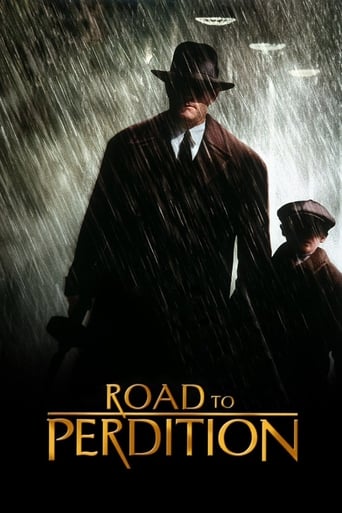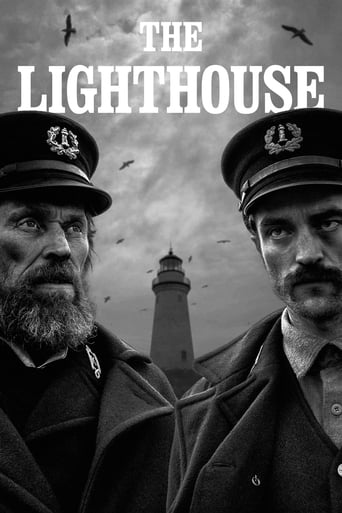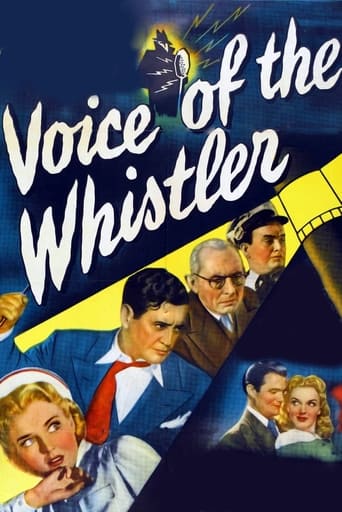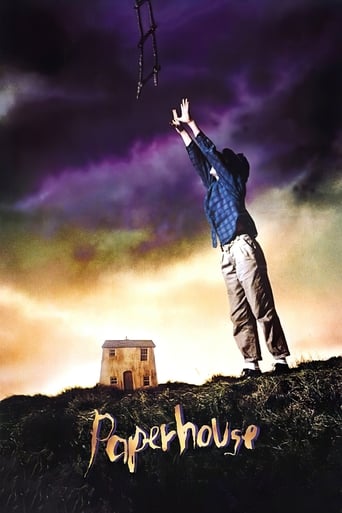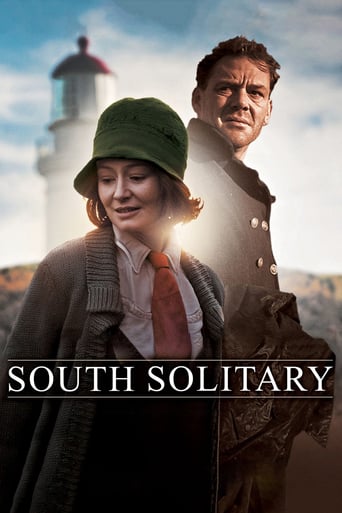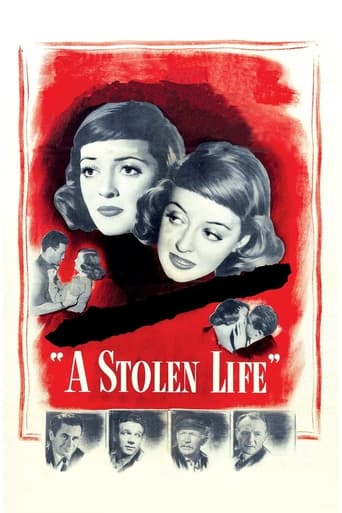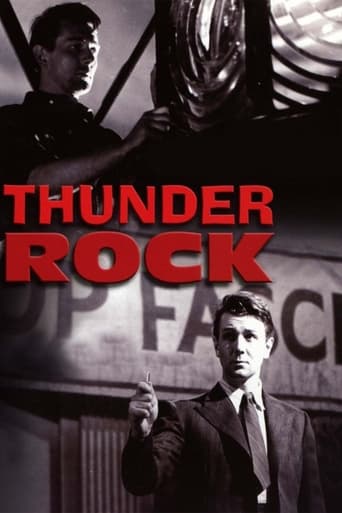
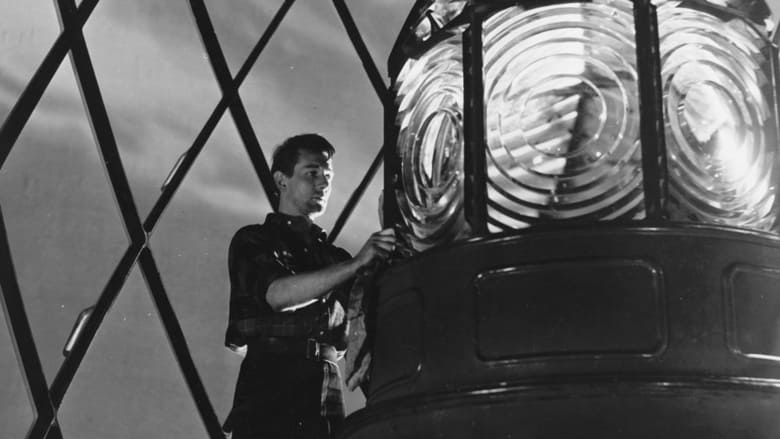
Thunder Rock (1944)
David Charleston, once a world renowned journalist, now lives alone maintaining the Thunder Rock lighthouse in Lake Michigan. He doesn't cash his paychecks and has no contact other than the monthly inspector's visit. When alone, he imagines conversations with those who died when a 19th century packet ship with some 60 passengers sank. He imagines their lives, their problems, their fears and their hopes. In one of these conversations, he recalls his own efforts in the 1930s when he desperately tried to convince first his editors, and later the public, of the dangers of fascism and the inevitability of war. Few would listen. One of the passengers, a spinster, tells her story of seeking independence from a world dominated by men. There's also the case of a doctor who is banished for using unacceptable methods. David has given up on life, but the imaginary passengers give him hope for the future.
Watch Trailer
Cast


Similar titles
Reviews
All the reviewers who wished they could see this film again (some of whom saw it originally in 1942!), can now see it again if they are resident British and subscribe to Freeview tv on Channel 81 It is shown regularly on this wonderful channel which I constantly watch if you can put up with the adverts which finances it, as it saves paying for numerous dvds which I used to do before I discovered this tv station.For example, every Sunday @ 9.p.m. GMT they are repeating the wonderful mid 60s episodes of "The Human Jungle" starring Herbert Lom which I originally saw when it was transmitted (I am now 72).Some reviewers thought Thunder Rock was too stagey.Does it matter? I saw the classic R.C.Sherriff's "Journey's End" on Youtube the other day which of course is based on his play.What if Michael Redgrave is a bit declamatory at times, he was an accomplished stage actor first.In 1942 Britain was in a precarious position so of course the Government sought propaganda films to help morale & the war effort.See this film on the aforesaid channel, the tv station is bound to repeat it occasionally.
David Charleston (Michael Redgrave) is an anti-Fascist who spent the entire 1930s warning the Western World of the threat of Nazi Germany, Fascist Italy, and Japan. But nothing was done, and in 1940 the world is teetering on the verge of falling into the hands of these three monstrous regimes. But Charleston has gotten fed up with being "Cassandra" (the Greek seer who was doomed to always foretell the future but never be believed). He has gotten an appointment to taking care of a lighthouse in the Great Lakes, at Thunder Rock, and cynically cuts himself off from mankind.Not totally though. He has discovered the remains of papers that concern the lives of the passenger and crew of a sailing ship, the Lady of the Lakes, which hit a reef near the site of the lighthouse in 1850, killing everyone on board. Reading of their lives he has reconstructed the lives of seven people and imagines what they were like. So they "entertain" him, by going through their normal behavior and set speeches. In particular a Doctor and his daughter (Frederick Valk and Lili Palmer) fleeing from the militarism of Germany. Valk was working on anesthesia and Palmer hoped to find a new home and a future (i.e., a husband and family) when the tragedy occurred. Redgrave takes a fancy to Palmer, and in his conversations she shows she is equally interested in him. But all of these ghosts (except the ship's Captain, Finlay Currie) are unaware that it is no longer 1850, and that they are all dead.The crisis of the film is when Currie (who has assisted in this mental game with Redgrave) gets tired about it because Redgrave has turned the characters into caricatures and not real people. When this happens he berates Redgrave for misusing his powerful imagination. Redgrave agrees to allow them more outspoken freedom of action. But when they are more outspoken, they ask questions about the time they are in and the world as it is. Redgrave gets fed up and (despite warnings from Currie) allows Palmer to read a plaque on the wall that describes the shipwreck and the loss of everyone on board. He then tells them that the civilization as they knew it is ending, and that he has gone into the lighthouse to avoid seeing it end close up. His disillusionment is expressed to them, and then he adds that now that he has revealed the truth he sees no further use in having them around. As they are figments of his imagination he will no longer need them and they can now disappear. Redgrave is seen concentrating. Only they don't disappear.Valk confronts him, and forces Redgrave to compare them with himself. Did civilization cease in the 19th Century due to their deaths? Is any one man (a Darwin, a Lincoln) so essential for change that without him or her change will never occur? Is isolation the answer to facing the future or to stand up and act?I was fortunate back in the 1970s to see a stage production of THUNDER ROCK in Manhattan at the Equity Library Theatre on W. 103rd Street. The play was shorter in cast than this film version (which builds up the stupidity that Redgrave's character faced in the 1930s, leading to his cynical viewpoint). But the effect of the play was still strong then as when it first appeared in the 1940s. Civilization is always facing some disaster - but as long as someone speaks out and acts it can continue to survive.
I saw this movie in 1942, when I worked for the War Department and had just enlisted in the Army Air Corps, so this might account for the strong memories I have of it.I was a little shocked that it seemed almost pure propaganda. However, it was clearly made for a British audience at a time when the nation was in imminent danger of invasion by the Nazis. Its message was never to give up hope.It opens with the hero being frightened by the spread of Fascism across Europe. He goes into a London movie house where the depressing newsreel is followed by a cartoon which the unthinking audience finds hilarious. Disgusted, he gives up and withdraws into himself. He becomes a sort of hermit and somehow gets a job as a lighthouse-keeper on the Great Lakes.Browsing through the lighthouse's log, he finds an account of a shipwreck. As he reads, the viewer notices that the lighthouse's central pole is now at an angle--a very clever hint of the transition to the fantasy now taking place. He is now on board the sinking ship and all is confusion and despair. But it turns out OK--the first example of the message (to the English) not to give up hope. There are several other such episodes including one about the doctor in Vienna who discovers that doctors not washing their hands is how the deadly childbirth fever infection is spread. A failure, he is laughed out of town. But a few years later his radical theory is proved correct. Another morale boost for the discouraged wartime English.I can't remember how the movie ends--but I've never forgotten the movie!
That this story is an allegory is clear from very early on but the director seems to have wanted to disguise it somehow with unnecessary padding. In doing so he detracts from the overall message and loses his audience a little along the way. Take the opening scenes as an example where a phone call is passed higher and higher through a chain of employees. It's well played, well acted and amusing and of absolutely no relevence whatsoever to the plot. You may as well have had a Donald Duck Cartoon instead and started the film where James Mason lands at the lighthouse.It achieves some great moments both in and out of it's lighthouse setting, Michael Redgrave is very good but everything just goes on that little bit too long for it's own good.James Mason stardom puts him near the top of the billing, but he's really only a bit player in this and doesn't make any significant contribution to the overall film.





